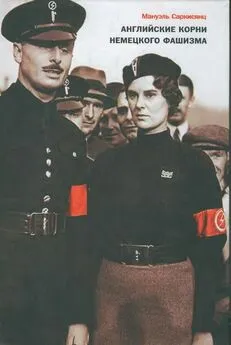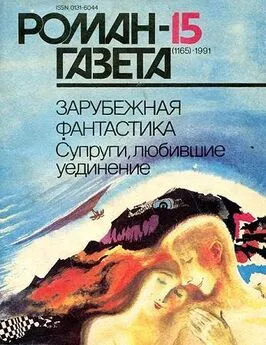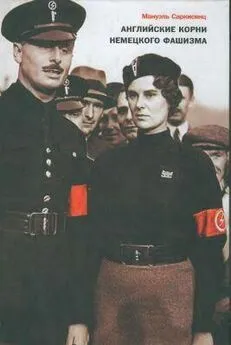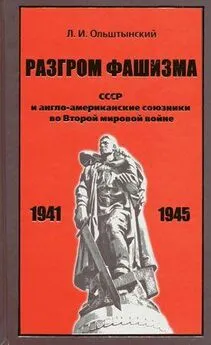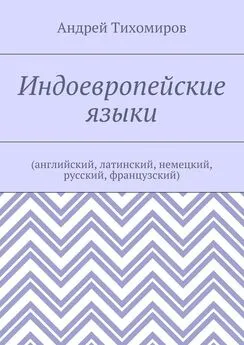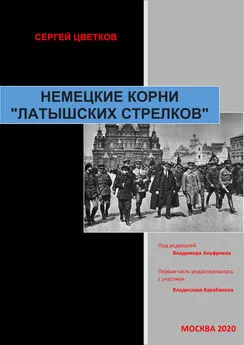Мануэль Саркисянц - Английские корни немецкого фашизма
- Название:Английские корни немецкого фашизма
- Автор:
- Жанр:
- Издательство:Академический проект
- Год:2003
- Город:Санкт-Петербург
- ISBN:5-7331-0169-5
- Рейтинг:
- Избранное:Добавить в избранное
-
Отзывы:
-
Ваша оценка:
Мануэль Саркисянц - Английские корни немецкого фашизма краткое содержание
В данной книге излагается совершенно новый взгляд на происхождение немецкого фашизма. М. Саркисянц доказывает, что многие истоки идей Гитлера кроются в имперской политике и идеологии Англии. Автор последовательно показывает, как колониальная политика Англии, ее имперские амбиции, отношение к расовому вопросу, принципы воспитания и образования повлияли на формирование идей Гитлера. Подробно рассказано об идеализации гитлеровского Рейха в консервативном истеблишменте Великобритании, об участии англичан во Второй мировой войне на стороне Германии. Автор анализирует также принципиальные различия в теоретических и практических подходах британских и германских расистов, обусловивших столь разную судьбу и оценку соответствующих исторических феноменов.
Английские корни немецкого фашизма - читать онлайн бесплатно полную версию (весь текст целиком)
Интервал:
Закладка:
1629
Ibid., S. 248—251. Vgl. Margarete Plewnia, Auf dem Wage zu Hitler. Der volkische Publizist Dietrich Eckart (Berlin, 1970), S. 94-111.
1630
Thurlow, Fascism in Britain, p. 86.
1631
Cosima Wagner, Tagebuch, Band II (Munchen, 1982), S. 1052: Eintragung vom 25. Mai 1877.
1632
James J. Barnes & Patience P. Barnes, Hitlers "Mein Kampf" in Britain and America,
The publication history 1930—1939 (Cambridge, 1980), S. 48.
1633
A. M. Gollin, Proconsul in Politics, A study of Lord Milner (London, 1964), pp. 46,
47, 603, 573; Keith Feiling, The Life of Neville Chamberlain (London, 1947), pp. 79f:
Chamberlain's Diary, note of 22. April, 1917.
1634
H. Arendt, Elements und Ursprunge totaler Herrschaft, S. 719.
1635
Geworfensein in das Nichts — термин хайдеггеровской философии (прим. автора).
1636
Hans Grimm, Heynade, IV, S. 5.
1637
D. S. Lewis, Oswald Mosley, Fascism and British Society (as note 884), p. 263, 266.
1638
Vgl. R. Griffiths, Fellow-Travellers of the Right, S. 59.
1639
Oswald Mosley, My Life (London, 1968), S. 364f.
1640
Theodor Schieder, Hermann Rauschmngs "Gesprache mit Hitler" als Geschichtsquelle = Rheinisch-Westfalische AkademiederWissenschaften, Vortrage,G 178(Opladen, 1971), S. 15.
1641
Thomas Jones, A Diary with Letters 1931 — 1950 (Oxford, 1954), p. 447f.
1642
Patricia Meehan, The Unnecessary War (London, 1992), p. 388f: Foreign Office 371/
46790;370/1268.
1643
John Charmley, as quoted by Caputi, p. 221.
1644
American Historical Review, Vol. CIII, No. 3 (June, 1998), p. 894.
1645
Mac Dougal, The racial Myth in England history (wie Anm. 115), p. 129—130; Edwin Jones, The English Nation. The Great Myth, p. 55.
1646
David Armitage, Ideological Origins of the British Empire (Cambridge, 2000), p. 78;
William Haller, Foxe's Book of Martyrs and the Elect Nation (London, 1963).
1647
Donald & Joanna Moore, The First 150 years of Singapore (Singapore, 1969), pp. 594f;
cf. Kathryn Tidrick, Empire and the English Character (1992), p. 279.
1648
Lawrence James, Rise and Fall of the British Empire (London, 1994), p. 504.
1649
BBC Broadcast of 29. December, 1996, 4.30—4.45 (programme directed to North
America).
1650
Lord Milner, The Nation and the Empire (1913), pp. xxxi f, xxxv: "The Two Nations" (4. December, 1912); Dibelius, II, S. 204f, 215, 216.
1651
Alfred Milner, "The Two Nations", Speech on 4. Dezember 1912: The Nation and the Empire (London, 1913), p. xxxf, xxxv; Wilhelm Dibelius, England, II, S. 215, 216, 204f; BBC-Radiosendung vom 29. Dezember 1996, 4.30—4.45 Uhr.
1652
Alfred Milner, "Key to My Position": Questions of the Hour (London, 1925), quoted by Richard Symonds, Oxford and Empire (Oxford, 1991), p. 44; Walter Oehme & Kurt Caro, Kommt das Dritte Reich"? Berlin, 1930—Rohwolt: reprint 1984— Ei chhorn), S. 52; Max Vandray, Der politische Witz im Dritten Reich (Munchen, 1967), p. 149; Louis Kilzer, Churchill's Deception. The dark secret that destroyed Nazi Germany (New York, 1994), pp. 57f, 294 (George Bernhard, in: New York Times of 29. June, 1941, p. 6E), 74f, 286, 289, 61.
1653
Klaus Hildebrand, Das vergangene Reich. Deutsche Aussenpolitik von Bismark bis Hitler. 1871-1945 (Stuttgart, 1995), S. 806f; Costello, p. 187.
1654
G. Strobl, Germanic Isle. Nazi perceptions of Britain (Cambridge, 2000), pp.93f; H. Thost, Als Nationalsozialist in England (Munchen, 1939), S. 60; vgl. Wendt, S. 126.
1655
Ориентация на Россию соответствовала тогда представлениям именно национальных, консервативных мыслителей Германии, — таких, как Освальд Шпенглер, Эрнст Юнгер, Мёллер ван дер Брук (прим. автора) (Мёллер ван дер Брук, Артур (1876—1925) — нем. писатель, автор книги «Третий рейх» (прим. перев.)).
1656
Hans Grimm, Heynade, V, S. 351; vgl. Otto Strasser, Hitler und ich (Konstanz, 1948), S. 139, 142; О. E. Schiiddekopf, Linke Leute von rechts (Stuttgart, 1960), S. 283-287.
1657
В «Mein Kampf» сказано: Германия должна была сыграть «роль Японии в 1904 году». То, что в виду имеется именно нападение на Россию, однозначно следует из замечания: при этом Германии пришлось бы пролить меньше крови, чем в мировой войне против Англии (прим. автора).
1658
Adolf Hitler, Mein Kampf (1941), S. 154, 155. Nicolas Sombart, Rendevouz mit dem Weltgeist, p. 212: "Carl Schmitt".
1659
Helmut Sundermann, Alter Feind — was nun? Wiederbegegnung mit England und Englandern (Leoni am Starnberger See, 1955), S. 8; vgl. Gitta Sereny, Albert Speer. Das Ringen mit der Wahrheit und das deutsche Trauma (Munchen, 1997), S. 602.
1660
Heinrich von Treitschke, Politik. Vorlesungen gehalten an der Universitat zu Berlin, Bd. I (Leipzig, 1897), S. 273.
1661
Georg Steinhausen, Geschichte der deutschen Kultur (Leipzig, 1913), S. 473.
1662
Eckermann, Gesprache mit Goethe (Leipzig, 1939), S. 295; Эккерман И.-П. Разговоры с Гете в последние годы его жизни / Пер. Н, Ман. М., 1986. С. 327.
1663
Walter Hofer, Die Entfesselung des zweiten Weltkrieges. Eine Studie uber die internationalen Beziehungen im Sommer 1939 (Stuttgart, 1955), S. 175.
1664
Charles Wontworth Dilke, The Greater Britain (London, 1869), Vol. I, p. 130 (Preface), II, p. 405, quoted in: Mac Dougal (as reference 44a), p. 99; Terry Cook, "Georg R. Parkin and the concept of Britannic idealism": Journal of Canadian Studies, X, Nr. 3 (1975), p. 17, 20f.
1665
Hans Kohn, Die Idee des Nationalismus (1950), S. 247, 847; Richard Symonds, Oxford and Empire (1991), p. 243; R. Kipling "A Sond of the English": Verses (London, 1940), pp. 170, 174; Milton, Eikonoklastes (1649), iii. Line 5: John Milton, Complete Prose Works, Vol. Ill (London, 1962), p. 482; J. A. Gamb, Reflections on the origins and Destiny of Imperial Britain (London, 1900), pp. 154, 315.
1666
R. Knox, The Races of Men (Philadelphia, 1950), p. 253; cf. ibid., pp. 217,216,220; N. C. Macnamara, Origin and Character of the British People (London, 1900), pp. 19,208.
1667
W. R. M. Stephens, Life and Letters of Edward Freeman, Vol. II (London, 1885), pp. 230, 428.
1668
W. R. M. Stephens, Life and Letters of Edward A. Freeman, Vol. II (London, 1895), pp. 230, 428.
1669
C. R. L. Fletcher, Introductory History of England, Vol. V (London, 1904), p. 418.
1670
Mac Dougal, p. 123: A. H. Keane, Man Past and Present (1900), p. 532f.
1671
Alfred Kelly, The Descent of Darwin. The popularization of Darwinism in Germany,
1860-1914 (Chapel Hill, USA, 1981), pp. 110, 130.
1672
Alain Cairns, Prelude to Imperialism, p. 42.
1673
F. W. Hirst & Murray and Hammond (as reference 148), p. 152.
1674
Joachim Kohler, Wagners Hitler, S. 338.
1675
So vor allem schon bei Thomas Carlyle (above, reference 232b).
1676
Adolf Hitler, Monologe (wie Anm. 443); Das Schwarze Korps, 5.1.1939: Strobl, p. 87. 1124a. Hannah Arendt, S. 292; oben wie Anm. 692, 710, 711, 714.
1677
F. Brie, Imperialististische Stromungen in der enlischen Literatur (Halle, 1928), S. 116f: John Ruskin, Speech of 14. December, 1869; Peter Fryer, Black People in the British Empire (London, 1989), pp. 174, 181, 173; J. Rutherford, Forever England (London, 1997), p. 5; Contemporary Review, II (1869), p. 230 quoted by Christine Bolt, Victorian attitudes to Race, p. 230.
1678
Philip Mason, Prospero's Magic. Some thoughts on Class and Race (London, 1962), p. 107; StrobI, The Germanic Isle, p. 95.
1679
Josef Goebbels, "Erziehung und Fuhrerschicht": Nationatsozialistisches Jahrbuch (Munchen, 1930), S. 180, 181.
1680
Т. C. Worsley, Barbarians and Philistines. Democracy and the Public Schools (London, 1940), pp. 251, 252; R. Wilkinson, The Prefects. British Leadership and the Public School Tradition (1964), p. 84; Wingfield-Stratford, The Squire and his Relations (London, 1956), p. 395; John Mackenzie (Editor), Imperialism and Popular Culture (Manchester, 1986), p. 19.
1681
Raymond Williams, George Orwell (London, 1971), S. 18; Thost, Als Nationalsozialist
in England, S. 68, 85; Rosenberg, Der Mythus, S. 386.
1682
David Newsome, Godliness and good learning (London, 1961), p. 2,4, 38f, 37,98, 209.
1683
Houston Stewart Chamberlain, Richard Wagner (Munchen, 1897), S. 496.
1684
Friedrich Lange, Reines Deutschtum. Grundzuge einer nationalen Weltanschauung
(Berlin, 1904), S. 237f.
1685
Andreas Hillgruber, "Die Endlosung und das deutsche Ostimperium", in: Herteljahreshefte fiir Zeitgeschichte,XX(l972),S. 137f, 152, 153.
1686
Helmut Bley, Kolonialherrschaft und Sozialstruktur in Deutsch Sudwestafrika = Hamburger Beitrage zur Zeitgeschichte, Bd. V (Hamburg, 1968), vgl. Bernard Semmel, Imperialism and Social Reform. English Social-Imperial thought 1895—1914 (London, 1960), p. 261,42, 43.
1687
Bley, S. 314.
1688
Ibid., S. 260f.
1689
Ibid., S. 261; Schmitt-Egner (wie Anm. 62a), S. 5.
1690
Alfred Milner, The Nation and Empire. A Collection of Speeches and Addresses (London, 1913), pp. xiv, xliii, xl—xlii; H. Schroder, (wie Anm. 1113), S. 62.
1691
B. Semmel, p. 251, 256; Thurlow, Fascism in Britain, p. 86; D. S. Lewis, Mosley, Fascism and British society, p. 203; Peter Hoffmann, Widerstand (wie Anm. 983a), S. 129; vgl. Bernard Semmel, Imperialism and Social Reform, p. 251, 256.
Читать дальшеИнтервал:
Закладка:
